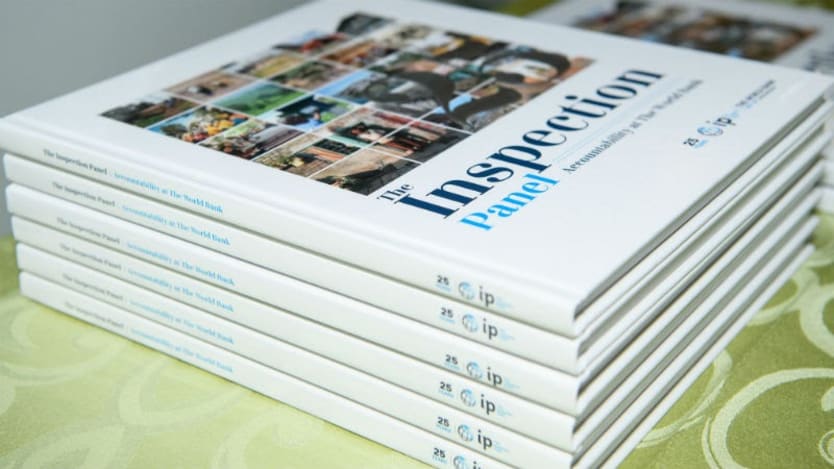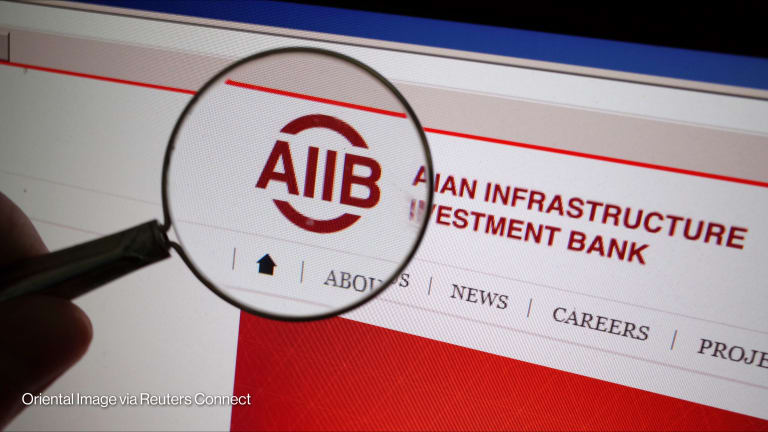World Bank finally approves Inspection Panel reforms after 2-year standoff

WASHINGTON — After more than two years of wrangling, the World Bank’s board of directors this week finally approved a package of reforms aimed at boosting accountability of its public sector lending.
“I expect we will be back to the drawing board in a few years.”
— Kristen Genovese, Centre for Research on Multinational CorporationsCampaigners described the reforms as a “watershed” moment but said they were just the beginning of changes that would need to be made.
More on the World Bank:
► World Bank looks to systematize growing role in fragile states
► World Bank announces $12B for coronavirus response
► World Bank staff call for canceling Spring Meetings — permanently
The package includes the creation of a new accountability office and independent dispute resolution service and also extends the timeline for communities to file complaints.
Both the bank’s president, David Malpass, and the board hailed the changes as significant and said they will strengthen the Inspection Panel, the bank’s main tool for responding to complaints from communities that have been harmed by projects it helped finance.
The top-level signoff on the reforms marks the end of a long struggle between members of the board’s Committee on Development Effectiveness, which in 2017 was tasked with reviewing the Inspection Panel to ensure it remains fit for purpose in light of the bank’s increasing presence in high-risk countries.
But conflicts arose between European and U.S. board members — many of whom were pushing for stronger accountability at the bank — and some borrower countries, such as India, which have faced panel investigations in the past and were understood to have resisted giving it greater powers.
The committee looked close to agreeing on reforms last summer, only to end up delaying again. Now, it has finally reached a compromise.
Accountability experts gave the reforms a mixed verdict, pointing out that even with the new powers, the bank’s accountability mechanisms remain underequipped compared with most development finance institutions.
“The outcome was better than it could have been … but a lot still has to be worked out …. [and] the next steps in implementing these changes … need to be developed in a transparent way with civil society input,” said David Hunter, professor of international and comparative environmental law at American University Washington College of Law.
Margaux Day, policy director at Accountability Counsel, said that the reforms represented a “watershed moment for World Bank accountability” but that the risk lies in how they are implemented.
A new accountability mechanism
The creation of a new World Bank Accountability Mechanism is a significant, and controversial, change. It will be headed by an executive secretary — a newly created role — who will be appointed by and report to the board.
The mechanism will host both the Inspection Panel and a new dispute resolution service, due to start work in September. The executive secretary will lead the dispute resolution service and take over “administrative functions” of the Inspection Panel. While the board has said the two organizations will be kept separate to “avoid conflict of interests,” Hunter said he is worried.
“The role of the AMS [accountability mechanism secretary], particularly its ‘administration’ of the panel budget and the reporting lines of panel staff, need to be clarified to ensure that the new administrator does not become an impediment to the panel’s operation,” Hunter told Devex.
“If this is not clarified, I believe conflicts between the AMS will arise, and the board will be required to step in and micromanage, which makes no sense,” he added.
He called for the AMS to be nominated by an independent search committee.
Other reforms
In another significant development, the board has agreed to change the deadline for communities to file complaints about projects. While previously a complaint had to be received before a project completed or a loan closed, now communities can file up to 15 months after the closing date. However, the change only applies to new projects.
The new addition of a dispute resolution service — something that is already offered for the bank’s private sector finance projects — gives communities “another way to have their issues addressed,” said Imrana Jalal, chair of the Inspection Panel.
However, Kristen Genovese, from the Dutch Centre for Research on Multinational Corporations, raised concerns about the mechanism’s one-year time limit for dispute resolution and the fact that a complaint needs to show a “serious violation” of bank policies to be eligible. Setting the bar for eligibility so high defeats the purpose of offering dispute resolution, which is to try to resolve issues quickly and creatively, Genovese said.
The board has also agreed to give the Inspection Panel new powers to monitor and verify the bank’s implementation of its “management action plans,” which are drawn up by bank staff in response to Inspection Panel findings. But this will only be done for complex or risky cases and with the board’s approval. Last year, the bank’s Independent Evaluation Group accused bank managers of failing to properly implement its own action plans.
While it may have taken the board more than two years of negotiation to get here, Genovese said she doubts it is the end of the reform process. “I expect we will be back to the drawing board in a few years,” she said.
Search for articles
Most Read
- 1
- 2
- 3
- 4
- 5








